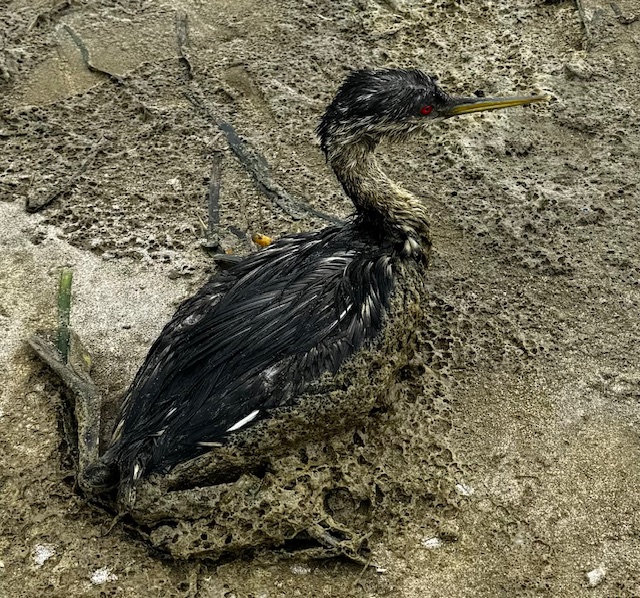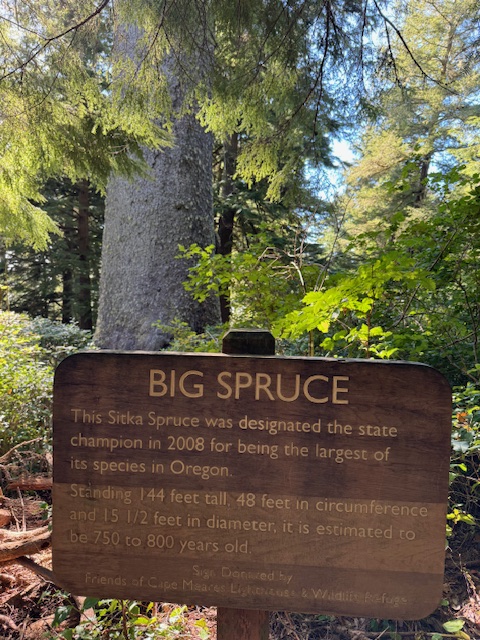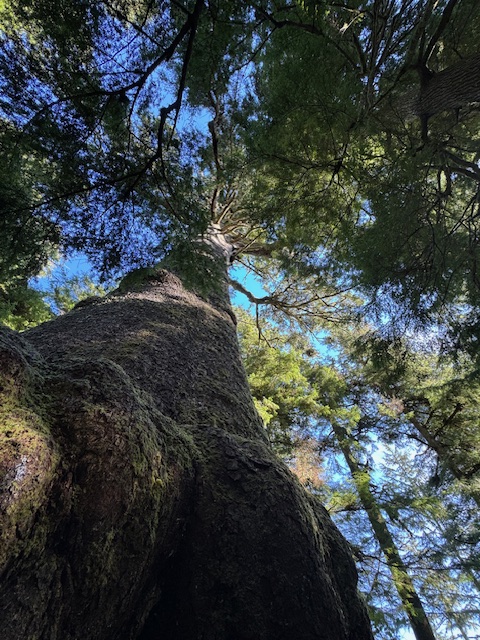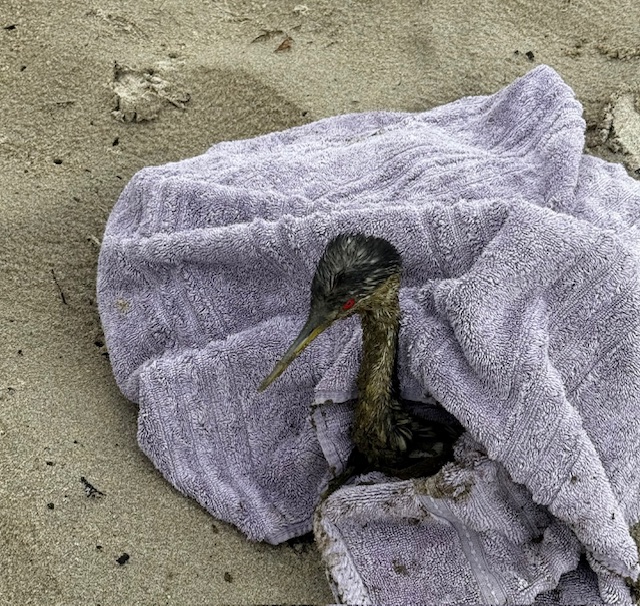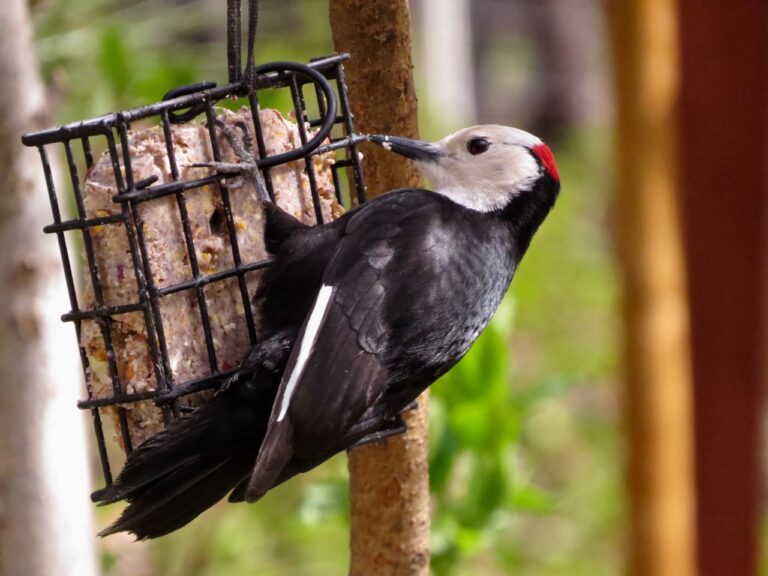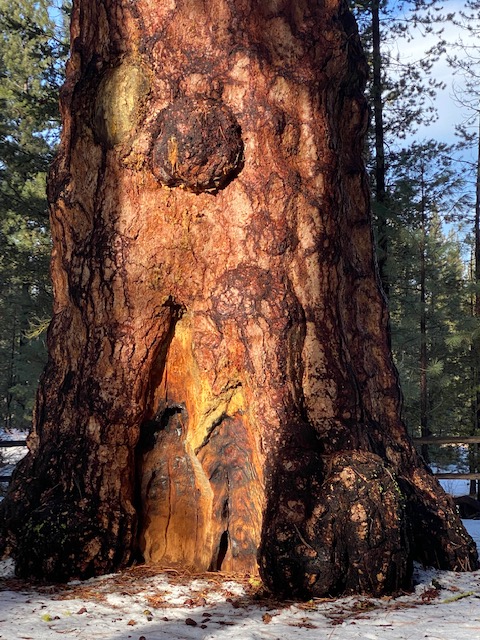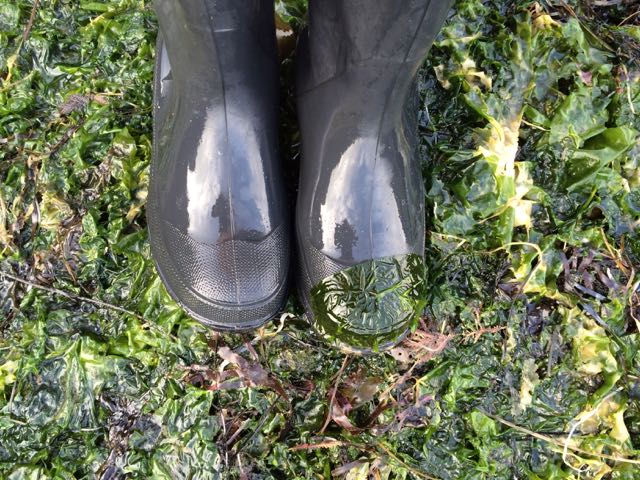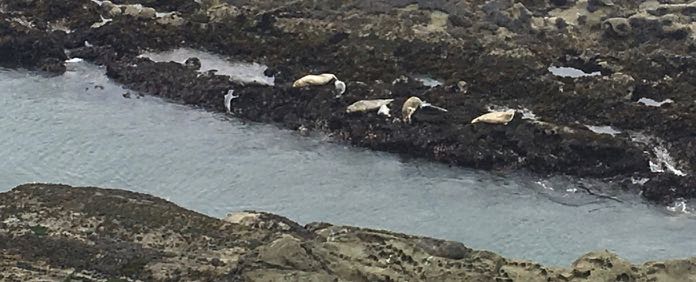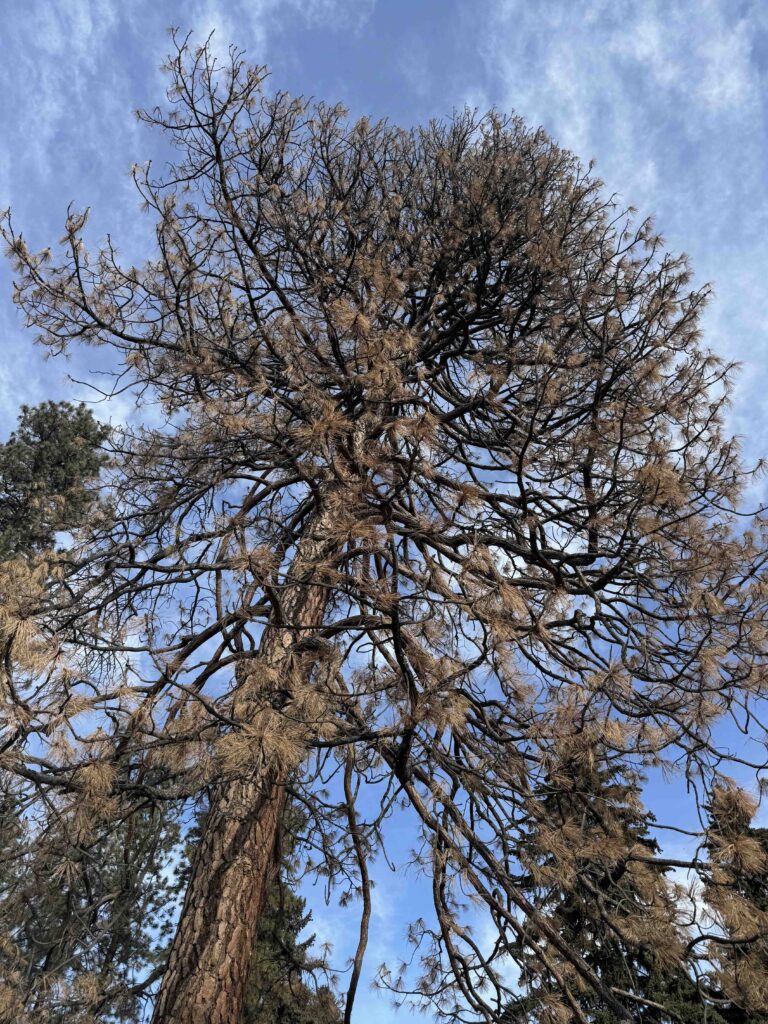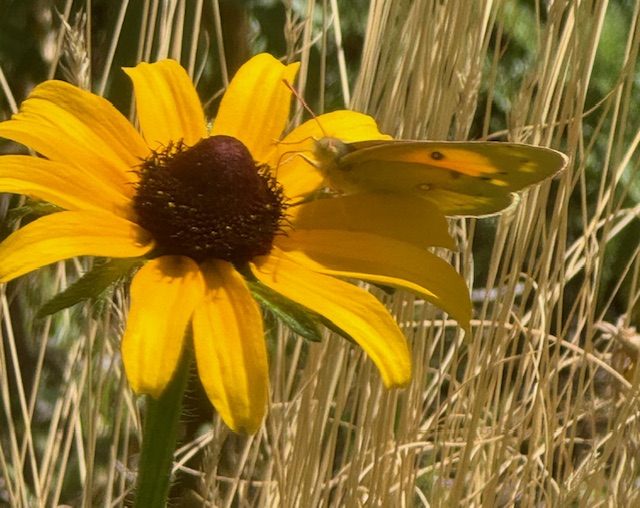The Sound of a Western Grebe Tapping…a story of rescue and gratitude
Note– I wrote this on October 16th –an unexpected drama amid a solo writing retreat at Cape Lookout State Park in Oregon. The Western Grebe led me to questions about how we relate to individual animals and whether we can take that emotional connection to care for whole ecosystems at risk. I found out later the grebe is a female (smaller beak) and is recovering well at the Wildlife Center of the North Coast. As of today, October 25th, she is able to fish on her own and is swimming full-time in their outdoor pool. She will be released in a bay near Cape Lookout. Hooray.
My fingers that fly upon the keyboard feel different this morning. Dawn is breaking wet and foggy in the way of the coastal rainforest. At my feet in a tall cardboard box is a juvenile Western Grebe, nestled next to a dry towel. I resist peeking in, knowing that darkness and stillness are best for this stressed bird. Soon, she will be headed two hours north to a rehabilitation center in Astoria. I am writing not about the bird, but the biggest Sitka Spruce in Oregon at Cape Meares National Wildlife Refuge. I call the tree the “Climate Guardian Spruce.” But as I contemplated this great tree, a wild living bird inches away took my writing in a new direction.
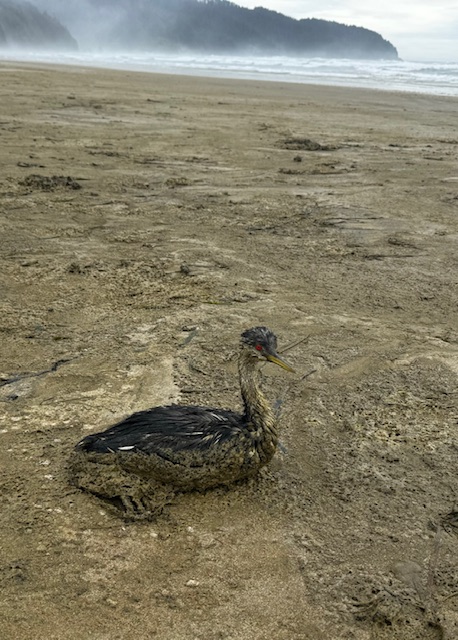
Here I am at Cape Lookout State Park ( ten miles south of Cape Meares) in my popup camper as this still feisty bird alternates between quiet and tapping a sharp slender bill on the box interior walls. The bill is razor sharp as I know from the quick jab I’d received during the rescue. I’m comforted by the tapping, a sign she still has strength.
This juvenile grebe washed up yesterday after a stormy night’s surf, and with no way to return. With legs set far back on the body for diving, a grebe cannot lift from land and fly. The bird was stranded on the beach. Cape Lookout State Park beach forms a long sandspit with the ocean on one side and a bay on the other. Likely, the young bird knew the calm of the bay and flew over to the ocean side only to find herself in trouble. She’s no Surf Scoter, a seabird that thrives in the tumult of waves.
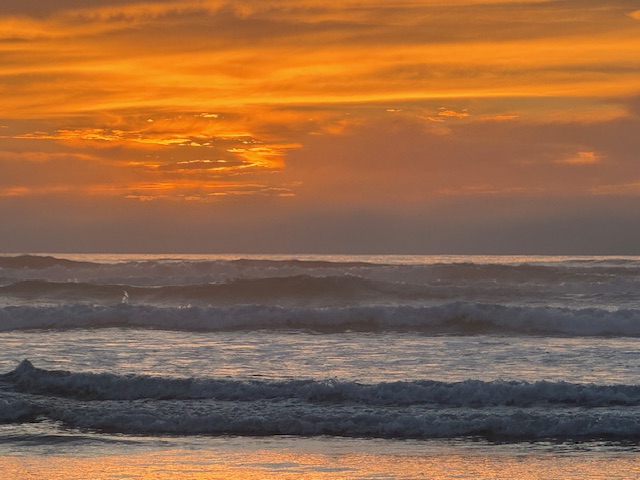
I found out later from Travis Korbe, the state park ranger, that early yesterday morning one well-meaning couple had wrapped the grebe in a towel and left her on a low dune with an offering of sliced apples and crackers—not exactly fish (!). After they reported the bird to Travis, he’d called the Wildlife Center of the North Coast in Astoria.. If there was no way to get the bird to Astoria or for a volunteer to come to the park, he’d planned to take the grebe to a nearby bay at day’s end.
It was noon when I returned from a hike up into the nearby ancient forest of Cape Lookout and walked the beach back to the campground. That’s when I saw a different youthful couple close to the grebe at the edge of incoming waves. The bird’s scarlet-rimmed eye blazed as if in defiance. Every feather was bedraggled and soaked. Sand and eelgrass clung to the legs and lower body. This bird was clearly in trouble, likely hypothermic. She opened her beak and gave a sharp warning one syllable Tuk!
The valiant grebe must have struggled out of the towel to waddle and slide down the dune to the water only to be further soaked by incoming waves. The drive to return to water was powerful. Now, this young couple had picked up the same damp dirty purple towel, not knowing the story. Unsure how to rescue the bird, they hesitated. I offered to take over–dropping the towel over the bird with that skewering open beak as the stressed grebe called again (like “oh no, not the towel!). But she settled down right away. I picked her up in my arms and carried her back up to the dune (“not the dune again!”).
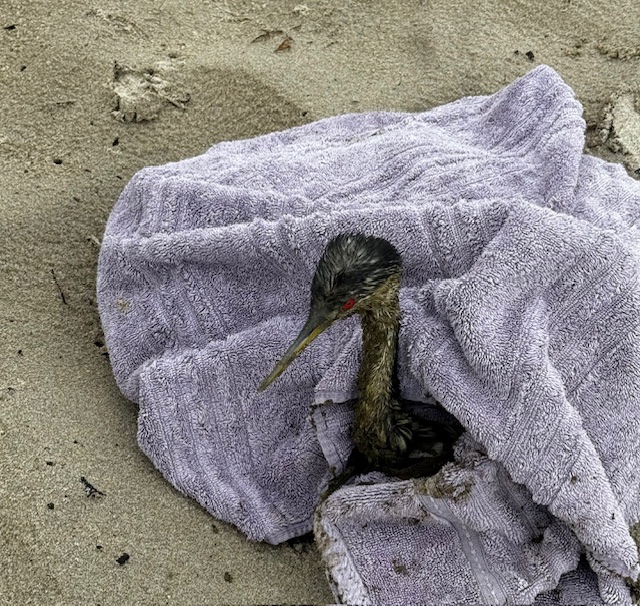
Right away I called Dawn Harris, my friend who not only works for the U.S. Fish and Wildlife Service but also is highly experienced in bird care. She confirmed this grebe was waterlogged and would die without rehabilitation. She praised the skills of the staff and volunteers at the Wildlife Center of the North Coast. The kind couple had also called the center, but it was unclear if or how this bird would get to Astoria. The good news? They had mentioned they would head north the following morning and could take her then. But would the grebe survive that long? They went off hiking, while I ran to retrieve two dry towels from my camper. When I returned, several Western Gulls were circling and a few had landed near the helpless grebe. I had to take definitive action.
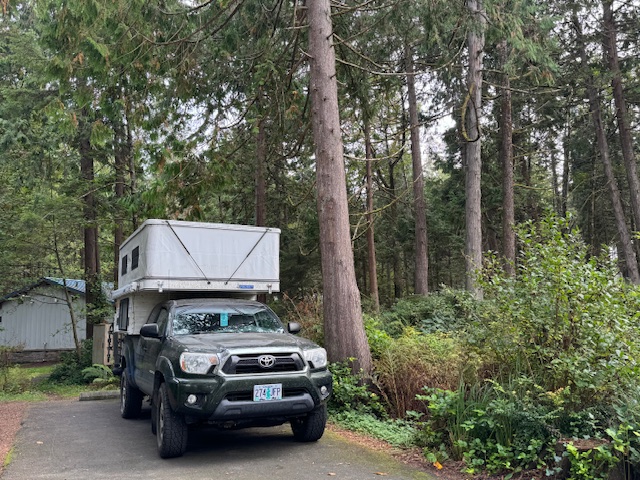
Carrying the bundled up grebe back to the camper, I was amazed at the lightness. Almost all the weight was in the towels. And now the bird is with me in the box provided by Travis, who has helped rescue many birds over his tenure at Cape Lookout. There’s a plan in place with the couple who will take the grebe to Astoria.
As I prepared to go to bed last night, I felt like I was in the presence of a restless baby not quite able to fall asleep. If I made the slightest noise, I would hear that beak tap tapping and sometimes a rustling and foot flap. When I climbed up into the platform bed above the truck cab, rain pounded on the roof and we were safe, warm, and dry. Before daybreak, I crept about making my coffee and resisting the temptation to open the box and peek.
To write now with a wild bird at my feet is taking me into a dream place, where I am feathered with bones hollow, and beak fierce. I imagine the future of this grebe built to dive deep into salty bays and freshwater in pursuit of fish. When old enough, she will perform one of nature’s wildest courtship dances. Please grebe–live long enough.
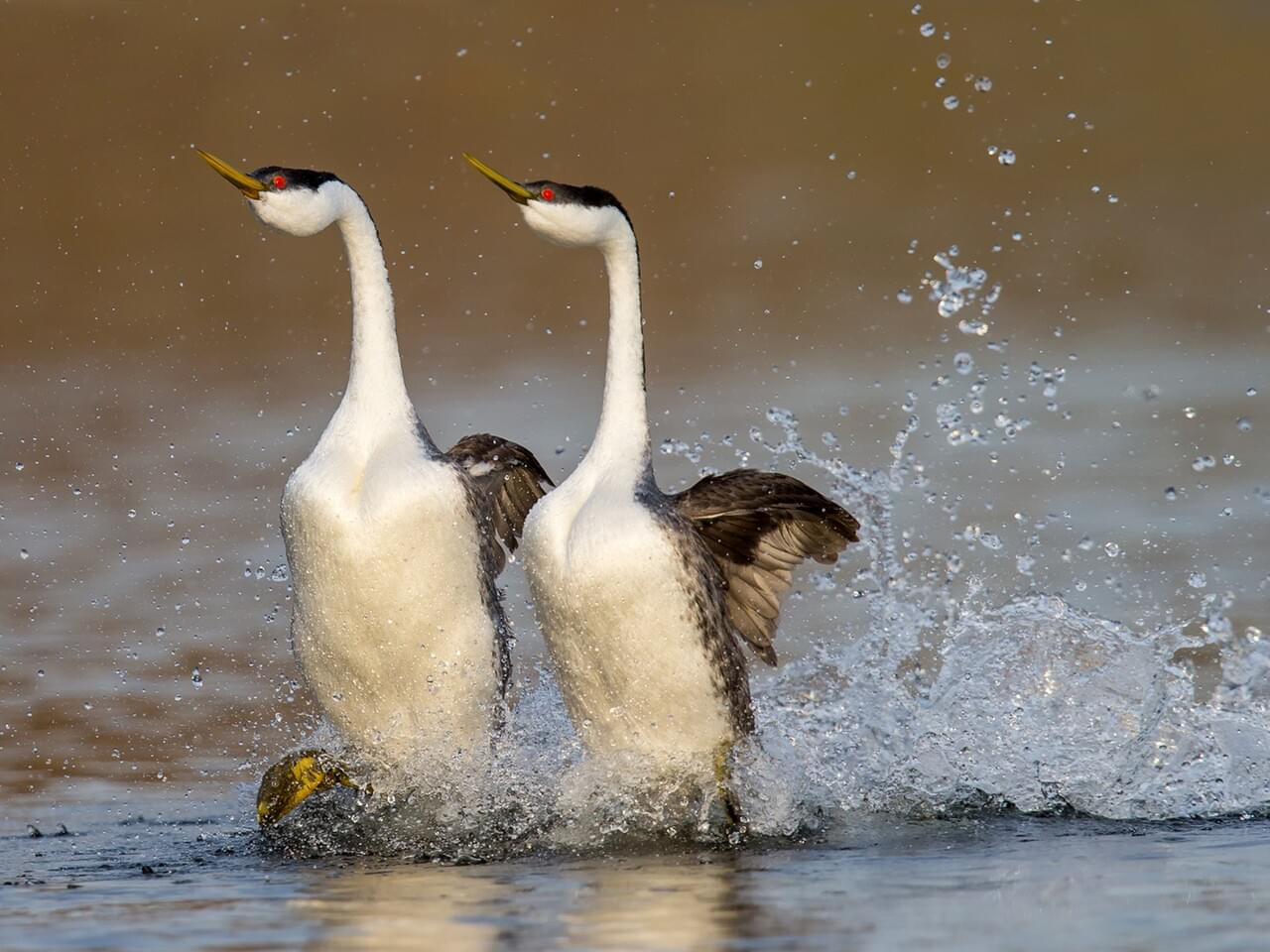
We humans seem to be cut out for rescuing individual birds and other animals, yet we’re terrible at rescuing ecosystems. This western grebe’s future is dependent on our actions to stop burning fossil fuels, to stop using plastic that ends up in the ocean and within seabirds, to stop overfishing, to stop clearcutting coastal forests, and to stop taking without reciprocity. Sometimes, we have to just…stop. (Except when it comes to voting for the future of the planet–that’s a full on go! Please cast your ballot on or before November 5th.)
While I care deeply for wildlife as individuals, I think before I step in to help. When a Cooper’s Hawk pinned down a Northern Flicker in our yard last winter, I accepted the predator and prey relationship. I honored a Cooper’s Hawk need to thrive. Still, it was hard to watch.
In a case like this grebe? It felt like the right action to take. I looked at those fiery wild eyes and wanted desperately to save this one bird. I believe every small gesture matters, in the way of Loren Eiseley’s famous starfish story:
“One day a man was walking along the beach when he noticed a boy picking something up and gently throwing it into the ocean. Approaching the boy, he asked, “What are you doing?” The youth replied, “Throwing starfish back into the ocean. The surf is up and the tide is going out. If I don’t throw them back, they’ll die.” “Son,” the man said, “don’t you realize there are miles and miles of beach and hundreds of starfish? You can’t make a difference!”After listening politely, the boy bent down, picked up another starfish, and threw it back into the surf. Then, smiling at the man, he said…” I made a difference for that one.”
How can we can harness the best of who we are as humans to do greater good for the planet? I think of how many people act with compassion–putting aside divisive politics to shovel an elderly neighbor’s driveway after a snowstorm, to help a stranded motorist, or to volunteer at food banks and wildlife rehabilitation centers. What unites us? Surely Mother Earth does. The grebe is a conduit to all this one bird must have to live in waters that sustain us all.
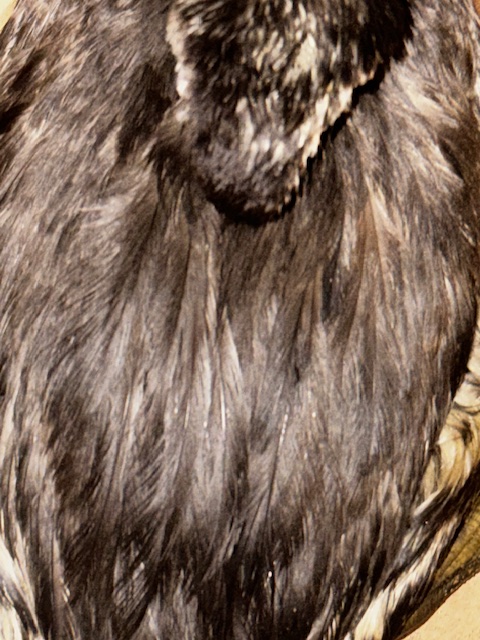
Soon, the grebe will leave my camper. I check now—opening the box and dropping in a few paper towels to cover the soiled places. The box does not seem too wet and the grebe has moved onto the soft towel. She turns her head in an attempt to preen the overlapping contour feathers of her back. This is a good sign. With her knife of a beak, she grasps a feather shaft at the base and runs her bill all the way through to the end, and then moves to the next feather.
What if we could preen all the tattered feathers of our broken world so they would interlock again?
I will miss you grebe. Travel safe to the Wildlife Center of the North Coast, where you will be tended and and returned to join other grebes in a safe bay near here. You will find refuge.
#
Thank you to all who played a role in the rescue of this Western Grebe. I am grateful to the Wildlife Center of the North Coast. (I just made a small donation in the grebe’s honor.)
